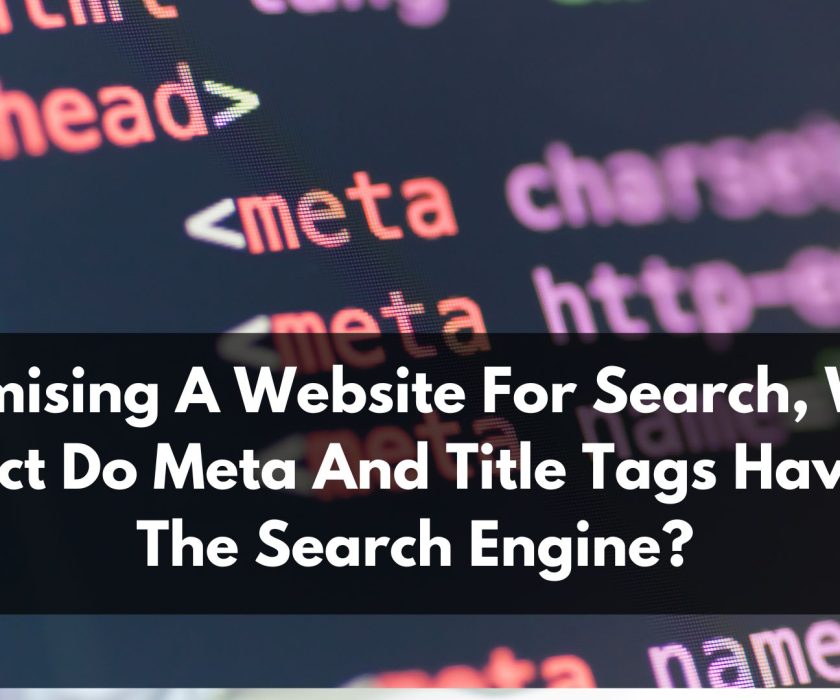How to Sell a Website?

In today’s cyberspace world, websites have become valuable digital real estate. Whether you’re a web developer, designer, or entrepreneur, selling websites can be profitable. The process involves much more than just finding a buyer—strategy, pricing, marketing, and legal aspects are involved. This blog will cover everything you need to know about selling websites, from preparing your site for sale to closing the deal, ensuring you get the best value for your hard work.
Understanding the Need to Sell a Website
Before diving into selling websites, it’s essential to understand why websites hold value. Websites are more than just an online presence; they can be valuable assets for various reasons:
- Revenue Generation: Websites that generate income through ads, affiliate marketing, or e-commerce can be sold for profit.
- Established Traffic: Websites with high traffic and strong SEO can attract buyers looking for an instant audience.
- Branding and Domain Value: Certain domain names or established brands have inherent value.
- Functionality: Custom websites that offer helpful tools or services can be highly sought after.
Knowing these value points can help you position your website better in the market.
Preparing Your Website for Sale
Proper preparation is essential when selling a website. A well-prepared website attracts more potential buyers, ensures a smoother transaction process, and helps you secure the highest possible value. Here’s how you can prepare your website before listing it for sale:
a. Clean Up Your Website
A slow, cluttered, or outdated website won’t impress potential buyers. Ensure your website is:
- Fast and Responsive: Optimize your site for speed, ensuring it loads quickly across all devices.
- SEO-Optimized: If your website ranks well in search engines, it will be more valuable.
- Mobile-Friendly: Buyers will likely want a responsive website that looks good on mobile devices.
- Updated Content: Keep your website’s content fresh and relevant. Outdated content can deter buyers.
b. Gather Data
The more data you can provide, the better. Buyers want to see proof of traffic, revenue, and engagement. Key data points to collect include:
- Traffic Reports: Use Google Analytics or similar tools to show consistent traffic patterns.
- Revenue Data: If your website generates income, share data on earnings from ads, affiliate sales, e-commerce, or services.
- SEO Metrics: Share data on organic traffic, keyword rankings, and backlinks.
c. Legal and Ownership Documents
Make sure you have all the necessary documentation that proves you own the website, including:
- Domain Ownership: Ensure you have the domain registration details ready for transfer.
- Content Ownership: If you’ve used freelancers or other creators for content, ensure copyright agreements are in place.
- Affiliate/Ad Contracts: If your revenue comes from ads or affiliate programs, have those contracts ready for review.
How to Determine the Value of a Website
Determining the value of a website is an essential step in the selling procedure, as it helps you set a fair and competitive price. Several factors contribute to a website’s valuation, from its traffic and revenue generation to its potential for growth and stability. Here’s a breakdown of how to assess the value of a website:
a. Revenue Multiples
If your website is generating revenue, it’s typically valued based on a multiple of its monthly or annual earnings. A common range is between 20 to 40 times monthly earnings. For instance, if your site makes $1,000 per month, you might sell it for $20,000 to $40,000 depending on factors such as growth potential, niche, and stability.
b. Traffic and SEO Factors
Even if your website doesn’t generate revenue, significant traffic can make it valuable. Buyers may purchase websites with high traffic and monetize them later. Consider:
- Domain Authority: Websites with high-quality backlinks and strong domain authority are more valuable.
- SEO Strategy: An established SEO presence can attract buyers interested in organic traffic.
- Potential for Growth: If your website shows steady growth in traffic, it can command a higher price.
c. Niche
The industry or niche your website serves can affect its value. Websites in high-demand niches such as finance, health, and tech tend to be more valuable than those in less popular niches.
d. Design and Functionality
A professionally designed website with clean coding and user-friendly functionality is more valuable than a poorly designed one. If your website offers custom functionality, such as an online store or membership platform, it can increase its selling price.
Read Also: How Many Types of Websites Are There?
Where to Sell Your Website
Once you’ve prepared your website for sale and determined its value, the next step is finding the right marketplace or platform to sell it. Knowing where to list your website is essential to reach a broad audience of potential buyers and maximize your chances of securing a good deal. Here are various platforms and methods you can use to sell your website:
a. Website Marketplaces
These platforms allow website owners to list their sites for sale and connect with potential buyers:
- Flippa: One of the most popular website marketplaces, Flippa offers a large audience of buyers for sites of all sizes.
- Empire Flippers: Known for higher-end website sales, Empire Flippers pre-vets listings, ensuring quality for both buyers and sellers.
- FE International: Specializes in selling established websites, particularly those generating substantial revenue.
b. Direct Sales
Sometimes, the best way to sell a website is through direct outreach. If your website serves a niche market, you might find buyers within that industry. Consider contacting competitors, investors, or business owners who might be interested in purchasing your website.
c. Auction Platforms
Auction platforms like Flippa allow for bidding on websites. Auctions can create competitive offers, but they also require proper promotion to attract the right bidders.
Marketing Your Website for Sale
Marketing your website for sale is essential to attract potential buyers and ensure you get the best possible offer. Like selling any other product or business, selling a website requires presenting it in a way that highlights its value, strengths, and potential for future growth. Here’s an explanation of how to effectively market your website for sale:
a. Create a Compelling Listing
A detailed, compelling listing can attract more buyers. Highlight the strengths of your website, including:
- Revenue and Traffic: Be transparent about your site’s traffic and income.
- Growth Potential: Explain how the buyer could grow the site further.
- Features: Mention any unique features, custom designs, or tools built into the site.
b. Use Social Media
Promote your website sale on your social media profiles, especially if you’re part of groups or communities relevant to your niche.
c. Leverage SEO
Ensure that your website’s sale page is SEO-optimized. Use relevant keywords like “buy established website,” “website for sale,” or “buy profitable e-commerce site.”
d. Email Marketing
If you have an email list, notify your subscribers that your website is for sale. Loyal followers might be interested in purchasing, or they could refer you to potential buyers.
Negotiating with Buyers
Once you’ve attracted potential buyers for your website, the next critical step is negotiating the terms of the sale. Negotiation is essential in ensuring that both parties reach an agreement that benefits them. Selling a website often requires patience and skilful negotiation to secure the best deal. Here’s how to handle this stage effectively:
a. Be Transparent
Honesty is key to building trust with buyers. Don’t overstate your website’s revenue or traffic, as this can lead to disputes later on.
b. Know Your Worth
Stick to your valuation, especially if you’ve done the work to accurately price your website. Be prepared to justify your asking price with data and growth projections.
c. Consider Payment Options
Some buyers may prefer to pay in instalments, while others will offer a lump sum. Be open to various payment arrangements, but always ensure you’re protected legally.
Read Also: How to Create Website for Business?
Transferring Ownership
After successfully negotiating and finalising the terms of the sale, the next step is to transfer ownership of the website to the buyer. This is a critical phase in the selling process, as it involves transferring all the assets and access rights and ensuring a smooth transition. Here’s an explanation of how to handle the transfer of ownership:
a. Domain Transfer
You’ll need to transfer the domain name to the buyer. This process can be done through your domain registrar.
b. Hosting Transfer
If the website is hosted on your own server, you’ll need to help the buyer move it to their hosting account.
c. Content and Database
Transfer all website files, databases, and content to the buyer. Ensure that everything is fully functional on the new server before completing the sale.
Legal Considerations
When selling a website, it is important to make sure that all legal aspects of the transaction are properly handled. Legal considerations help protect both the buyer and seller, minimize risks, and ensure that the transfer of ownership is done in compliance with the law. Here’s an explanation of the legal steps involved in selling a website:
a. Sales Agreement
Draft a detailed sales agreement outlining the terms of the sale, including the price, payment terms, and any other conditions.
b. Copyright and Intellectual Property
Ensure that you transfer any intellectual property related to the website, such as content or design elements, as part of the sale.
c. Non-Compete Clauses
Some buyers may request a non-compete clause, ensuring you won’t start a similar website in the same niche after selling the current one.
Conclusion
Selling a website can be a profitable venture if done correctly. By preparing your website for sale, pricing it accurately, and marketing it to the right audience, you can secure a great deal.
If you need assistance building, optimizing, or selling websites, Trycyfer is here to help. We specialize in web development, SEO, and digital marketing, ensuring your website not only performs well but also attracts potential buyers when it’s time to sell. Visit Trycyfer Technologies to learn more about our services and how we can assist you in achieving your digital goals.











